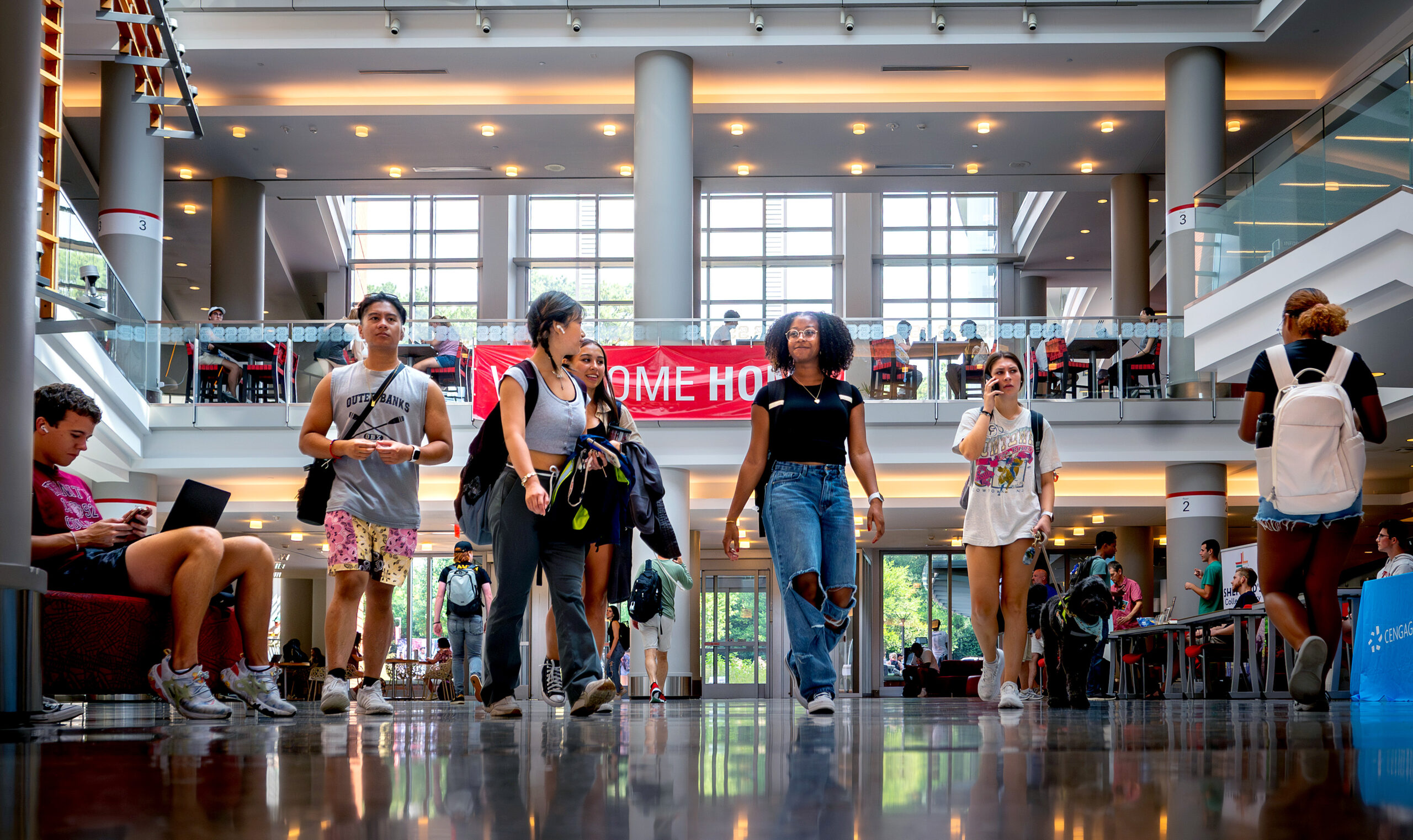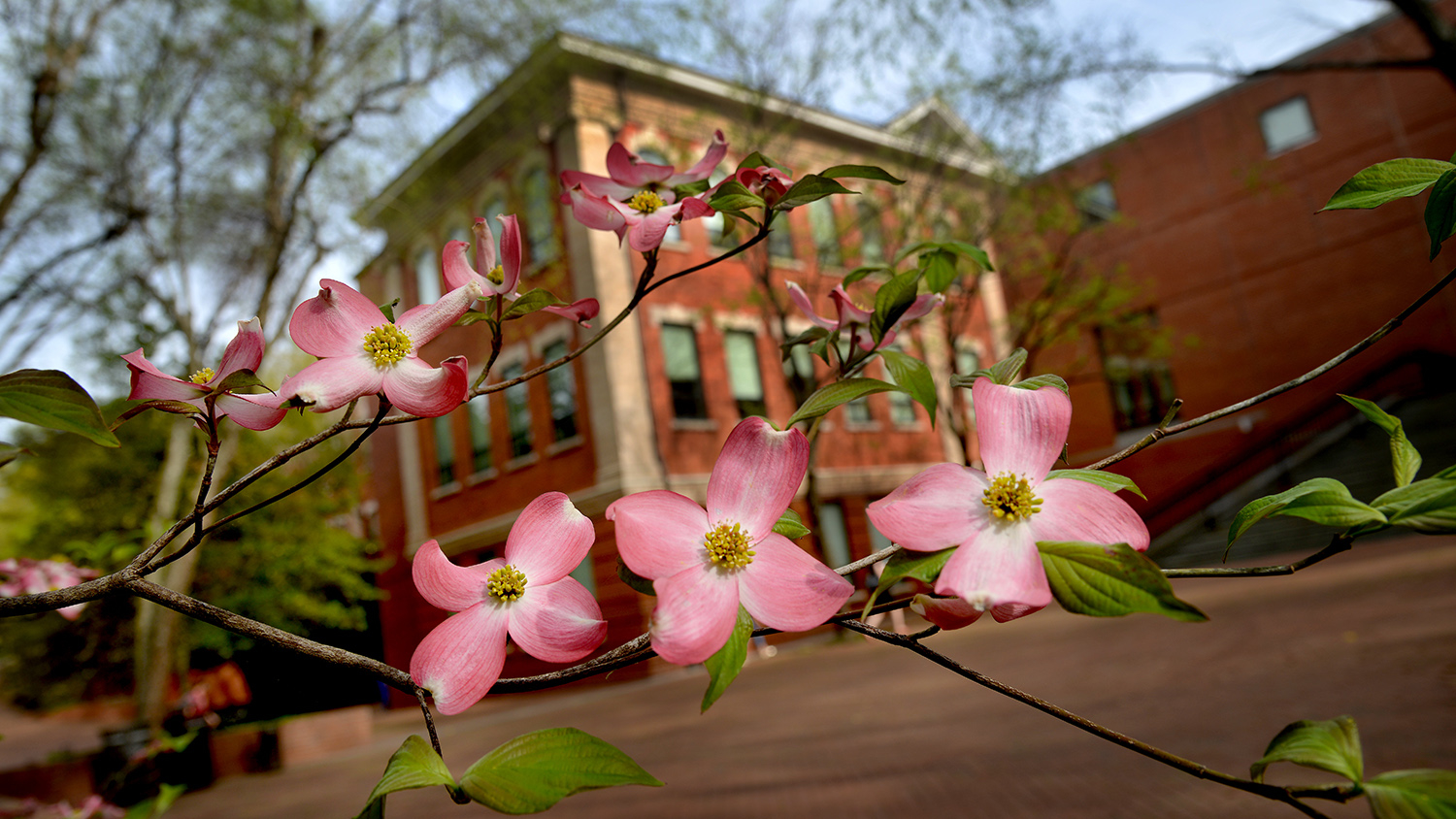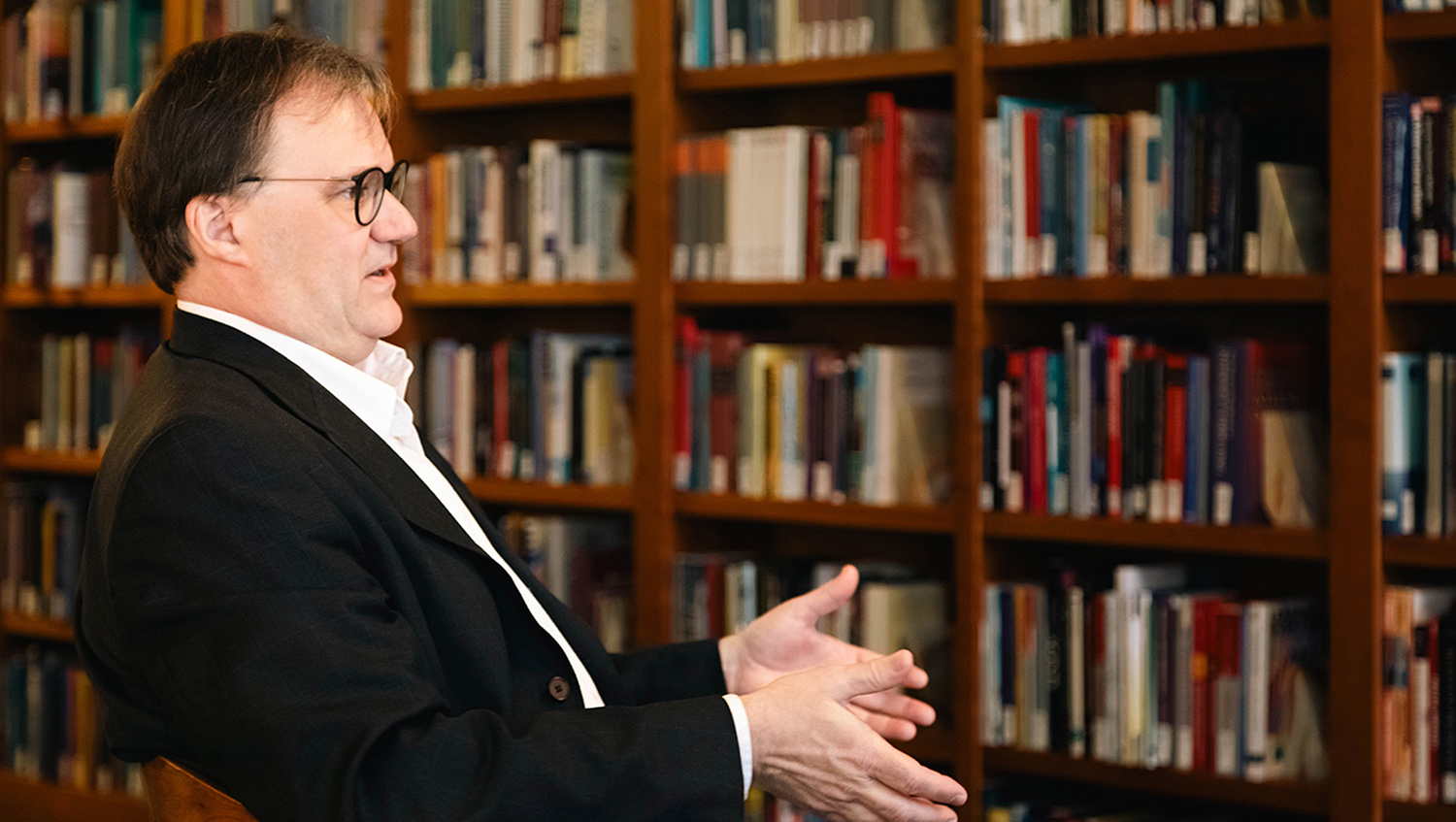Introducing AI-powered chatbots for mental health enhancement, exploring perceptions of underrepresented college students in U.S. higher education, and creating a wellness internship program at the Agroecology Education Farm.
These are just three of the 10 initiatives the College of Humanities and Social Sciences’ Office of Diversity, Equity and Inclusion is funding through its wellness and belonging mini-grant program, now in its second year.
“Through this mini-grant program, we hope to generate ideas, foster initiatives and stimulate efforts that are tailored to the needs of our college and its various constituencies at NC State,” said Juliana Makuchi Nfah-Abbenyi, distinguished professor of English and comparative literature and the college’s associate dean of diversity, equity, and inclusion.
Wellness and belonging mini-grants, Nfah-Abbenyi added, support the efforts of a broad spectrum of faculty, staff and students to make the college locally responsive and globally engaged by creating an environment in which we all can thrive.
This year, the program is providing $23,350 to fund 10 initiatives, out of 17 proposals reviewed. These initiatives further diversity and inclusion, wellness and belonging, and the college’s academic mission.
Nfah-Abbenyi said the 10 selected projects represent 12 different departments, units and colleges at NC State and the Performance Aesthetics and Communication Research Group at the Federal University of Minas Gerais, Brazil. Each project receives up to $3,000 in funding, which must be spent by May 31, 2024.
Below is a list of the 2023-24 wellness and belonging mini-grant recipients and descriptions of their projects.
Introducing AI-Powered Chatbots for Mental Health Enhancement
Principal investigators: Yang Cheng, Jaekuk Lee; Jinzhe Qiao; Celeste He
Project description: This proposal seeks to conduct a comprehensive research project focusing on the potential of AI-powered chatbots on mobile devices to improve youth mental health. This initiative extends beyond traditional mental health support by integrating cultural and linguistic sensitivity into the AI chatbot tool.
Keys to College – Mental Health: Breaking Barriers and Seeking Support
Principal Investigator: Anna Gibson
Project description: This project will support the preparation, filming, and production of a short video about mental health for primary use in the multiple sections of HSS120: Introduction to Humanities and Social Sciences, and for secondary use beyond these courses for all students, aimed at destigmatizing mental health and helping students seek support from the resources available to them at NC State.
Faculty Wholeness: Invisible Labor, Wellness, and Trust in Faculty Careers
Principal investigators: Kirsti Cole, Amanda Stewart, Angie Smith, Laura Nelson
Project description: This pilot project will address faculty invisible labor in CHASS by supporting the collection of evidence and implementation of a pilot intervention with CHASS faculty, which has replication potential across the university and beyond.
Declining Black Student Belonging at a Predominantly White Institution
Principal investigator: James Mulholland
Project description: This project will produce aggregate data on student belonging by racial/ethnic group and college. Having a firm grasp on this information would allow us to see what gaps exist in our community-building and outreach to Black students in CHASS and at NC State.
Campus Autism Day
Principal investigator: Crissy Williams
Project description: This is a continuing project from the last mini-grant to promote autism awareness on campus. The project will advance collaboration with organizations, faculty, staff and parents in furthering autism advocacy across campus.
Toward Improving the Mental Wellbeing of NC State Students through Rhetorical Networks
Principal investigators: Skylar Meeks, Mar Scardua, John Finnemore, Al Rodriguez, Steadman Wilson, Ericka Christie
Project description: By understanding how students create networks in the wake of suicides on campus, we can reestablish a sense of belonging to the university. Investigators will interview students and analyze their responses. Questions will focus on how students discuss suicide with their peers, how they support each other after a student suicide, and what they think of the university’s response to student suicides.
Every Person is an Invention – LGBTQ+ Stories
Principal investigator: Fernanda da Costa Portugal Duarte
Project description: The project’s goal is to engage with storytelling as a strategy to create visibility for LGBTQIAPN+ life stories in ways that affirm the legitimacy of their life experiences and identity formation. The project will be implemented in collaboration with Juarez Guimarães Dias, faculty lead of the Performance Aesthetics and Communication Research Group at the Federal University of Minas Gerais, UFMG, in Brazil.
Fostering Student Wellness and Belonging in the Classroom Workshop Series
Principal investigators: Maurika Smutherman, Megan Flannery, Grace Wiedrich
Project description: This project comprises a series of three, one-hour workshops for NC State faculty and teaching assistants. The series aims to create a community-driven environment in NC State classrooms. While the project will focus on experiences in the humanities and the workshops will be most beneficial for CHASS faculty and staff, instructors of any discipline are welcome to attend the workshops.
Agroecology Education Farm Wellness Initiative
Principal investigator: Leah Guercio
Project description: The initiative is to create a Wellness Internship Program at the Agroecology Education Farm (AEF) and grant students the opportunity to develop leadership skills as they implement and design comprehensive wellness workshops. Also, it will provide more robust and consistent wellness programming and connect AEF to a wider audience, aimed at engaging 50 students new to the farm.
Mental Health and Counseling Services: Perceptions of Underrepresented College Students in U.S. Higher Education
Principal investigator: Tugce Ertem Eray
Project description: This project will examine mental health issues among under- represented college students in U.S. higher education and the resources available and useful to pursue their college degrees. The goal is to discover how these students navigate mental health challenges and their coping mechanisms. The research aims to improve CHASS programs and initiatives for underrepresented college students.
- Categories:



